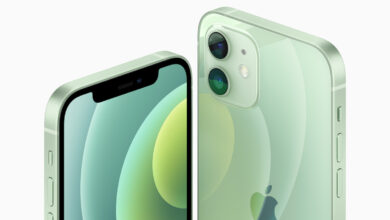The year is 2025. Smartphones have evolved into hyper-intelligent companions powered by on-device AI, foldable screens are the norm, and the Android operating system—now likely in its 15th or 16th iteration—is smoother and more secure than ever before.
Ten years ago, rooting was almost a rite of passage for tech enthusiasts. If you wanted to take a screenshot, remove annoying carrier bloatware, or even just make your battery last past 5 PM, you needed “superuser” access. But the landscape has shifted dramatically. Manufacturers have listened, integrating features that once required complex hacks directly into the stock OS.
So, the question remains: Is rooting Android still worth it in 2025? Or is it a relic of a bygone era best left to history? Let’s dive deep into the current state of Android modification to help you decide.
The Evolution of Android: Why We Used to Root vs. Now
To understand the present, we have to look at the past. In the early 2010s, Android was the “Wild West.” It was customizable but rough around the edges. Rooting was the only way to gain true control over the hardware you owned.
However, according to recent tech retrospectives by outlets like The Verge, the gap between “Stock Android” and “Rooted Android” has narrowed significantly. Features like system-wide dark mode, granular permission controls, screen recording, and advanced theming (thanks to Material You) are now standard.
In 2025, the motivations for rooting have shifted from “necessity” to “niche utility.” It is no longer about fixing a broken phone; it is about privacy, longevity, and pushing hardware beyond its intended limits.
The Pros: Why Enthusiasts Still Root in 2025
Despite the maturity of the ecosystem, a vibrant community of developers still thrives. Platforms like XDA Developers remain active hubs for modding. Here is why users are still unlocking their bootloaders today.
1. Absolute Control and Debloating
Even in 2025, carrier and manufacturer bloatware persists. You buy a premium device, and it comes pre-loaded with social media apps or games you cannot uninstall, only “disable.”
Rooting grants you Superuser access. This allows you to completely wipe these system partition apps, freeing up storage and potentially improving RAM management.
2. Advanced Privacy and Ad-Blocking
Privacy is the currency of the digital age. While browsers block ads, system-wide tracking is harder to stop.
-
System-wide Ad Blocking: Tools like AdAway modify the host files at the system level, blocking ads in apps and games, not just the browser.
-
Firewall Control: Root apps allow you to block specific apps from accessing the internet entirely, ensuring your data doesn’t leave the device without your say-so.
3. Extending Device Life with Custom ROMs
This is perhaps the strongest argument for rooting in 2025. While companies like Google and Samsung now offer 7 years of updates, many mid-range phones are dropped after two or three years.
By rooting and installing a Custom ROM (like LineageOS), you can run the latest version of Android on hardware that the manufacturer deemed “obsolete.” It reduces e-waste and saves money.
4. Deep Customization and Automation
For the power user, stock Android is still too restrictive. Rooting allows for:
-
Kernel Tweaking: Overclocking the CPU for gaming or underclocking it for extreme battery life.
-
UI Overhauls: Changing fonts, boot animations, and system sounds that are usually locked.
-
Advanced Automation: Apps like Tasker can perform much more powerful actions (like toggling GPS or killing background processes) with root access.
The Cons: The Dealbreakers and Risks
If the pros sound appealing, you must weigh them against the increasingly heavy cons. Google and app developers have made life very difficult for rooted users in recent years.
1. The “Cat and Mouse” Game with Banking Apps
This is the single biggest downside. Modern banking, payment, and government ID apps rely on the Google Play Integrity API (formerly SafetyNet). These security checks detect if the system has been tampered with.
While tools like Magisk and KernelSU attempt to hide the root status, it is a constant battle. According to reports from Android Authority, Google’s detection methods are becoming AI-driven and incredibly aggressive. You might wake up one morning to find your Google Wallet or banking app simply refuses to open.
2. Voiding Warranty and Official Support
In most regions, unlocking your bootloader immediately voids your manufacturer’s warranty. If your screen glitched a week later—even if it was a hardware defect unrelated to rooting—the service center could legally refuse to fix it.
3. Loss of Proprietary Features
On high-end devices, rooting can permanently break specific hardware features.
-
Samsung Devices: Tripping the “Knox” security counter permanently disables Samsung Pay and Secure Folder. It cannot be reversed.
-
Sony Devices: Unlocking the bootloader often wipes the DRM keys required for advanced camera processing algorithms, degrading photo quality.
-
Pixel Devices: Some on-device AI processing features may fail if the secure enclave detects a compromised boot chain.
4. Security Vulnerabilities
Rooting bypasses the strict sandboxing that Android uses to keep apps separate. If you accidentally grant root access to a malicious app, it has the keys to the kingdom. It can read your keystrokes, access private data, and install permanent malware that a factory reset might not remove.
Summary: Stock vs. Rooted Android
To make the decision easier, here is a quick comparison of what you get with each approach in the current 2025 landscape.
| Feature | Stock Android (Non-Rooted) | Rooted Android |
| Security | High (Sandboxed, Verified Boot) | Lower (Depends on user vigilance) |
| Updates | Automatic OTA (Over-the-Air) | Manual flashing usually required |
| Banking Apps | Works flawlessly | Hit or miss (Requires constant tweaking) |
| Customization | Moderate (Launchers, Themes) | Unlimited (System files, Kernels) |
| Bloatware | Can disable, usually cannot remove | Can completely uninstall |
| Warranty | Intact | Voided (in most cases) |
| AI Features | Full Support | Risk of breaking secure AI functions |
Who Should Root in 2025?
Based on the pros and cons, rooting is no longer for the general public. It caters to specific user archetypes:
-
The Privacy Advocate: Someone who wants to “De-Google” their phone entirely, removing all tracking services and relying on open-source alternatives.
-
The Retro-Tech Enthusiast: Someone keeping a Galaxy S10 or Pixel 5 alive and running Android 15 perfectly smooth.
-
The Developer/Hacker: Professionals who need to test apps, analyze network traffic, or develop mods.
If you are just an average user who wants to change the font or save battery, stock Android settings are likely sufficient. As noted by CNET, the risks of bricking your primary communication device simply outweigh the benefits for 99% of users.
Frequently Asked Questions (FAQ)
Q: Is rooting illegal?
A: generally, no. In the US and most of Europe, you have the legal right to modify the software on devices you own. However, it violates the Terms of Service of the manufacturer and will void warranties.
Q: Can I unroot my phone later?
A: Yes. You can usually flash the “stock firmware” provided by the manufacturer to return the phone to its original state. However, hardware fuses (like Samsung’s Knox) cannot be untripped, meaning some security apps will never work again on that specific device.
Q: Does rooting make my phone faster?
A: Not automatically. In fact, poor management of root apps can slow it down. However, it allows you to install custom kernels that can be tuned for performance, which can make the device faster if configured correctly.
Q: What is the difference between Jailbreaking and Rooting?
A: They are similar concepts. Jailbreaking refers to Apple iOS devices, while Rooting refers to Android. Both involve bypassing manufacturer restrictions to gain full access to the file system.
Conclusion
So, is rooting Android still worth it in 2025?
For the vast majority of users, the answer is no. The modern Android experience is polished, feature-rich, and secure. The inconvenience of losing access to banking apps, Google Wallet, and automatic updates is a high price to pay for minor tweaks.
However, for the 1% of power users who value ownership and privacy above convenience, rooting remains the ultimate expression of digital freedom. It keeps old hardware out of landfills and gives you true dominion over the device you paid for.
If you decide to proceed, remember the golden rule of modding: Read the instructions twice, back up your data, and proceed at your own risk.

 Essential Tips for Buying a Used Laptop Safely
Essential Tips for Buying a Used Laptop Safely 7 Safe Tips for Buying Used Phones on Online Marketplaces in 2025 and Signs of Fake Phones
7 Safe Tips for Buying Used Phones on Online Marketplaces in 2025 and Signs of Fake Phones IPhone 12: Still Strong in 2025! Old Flagship with Unbeatable A14 Bionic Performance
IPhone 12: Still Strong in 2025! Old Flagship with Unbeatable A14 Bionic Performance Oppo Pad: Ultra-Thin Tablet for Gaming, Elegant Design Makes Competitors Nervous!
Oppo Pad: Ultra-Thin Tablet for Gaming, Elegant Design Makes Competitors Nervous! Indonesia AI Report 2025 Reveals 5 Job Fields That Will Emerge Due to AI
Indonesia AI Report 2025 Reveals 5 Job Fields That Will Emerge Due to AI 5 Ways to View WhatsApp Status Secretly Without Blue Checkmarks
5 Ways to View WhatsApp Status Secretly Without Blue Checkmarks iPhone Photography: Myths or Facts? Is the iPhone the Best for Video Quality?
iPhone Photography: Myths or Facts? Is the iPhone the Best for Video Quality? iPhone 13: Still Cool in 2025! OLED Screen, Cinematic Mode, and Stable Performance Make It Hard to Switch to Android
iPhone 13: Still Cool in 2025! OLED Screen, Cinematic Mode, and Stable Performance Make It Hard to Switch to Android